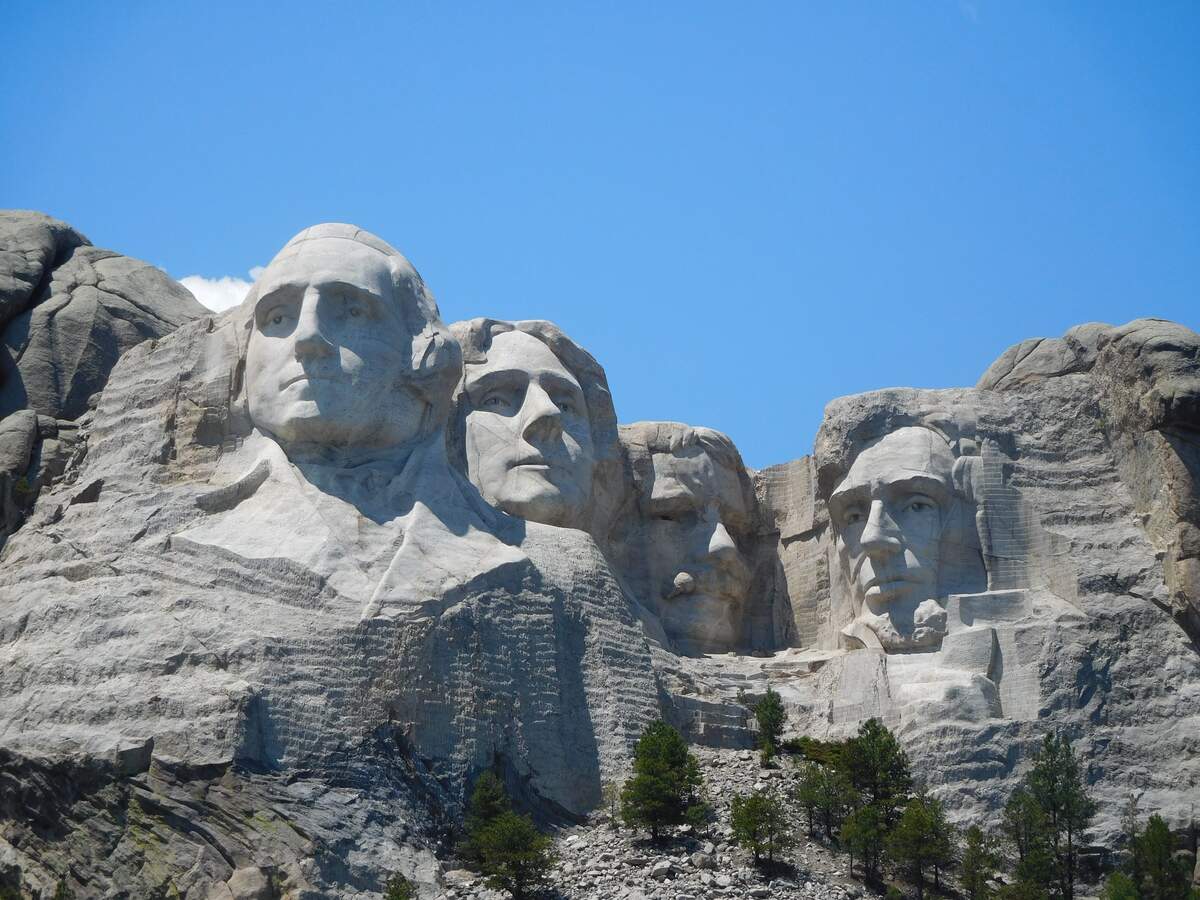

Thomas Jefferson Day
Also known as
Thomas Jefferson's Birthday
Observed
annually on April 13th
Dates
Founded by
President Franklin Delano Roosevelt on March 21st, 1938
Hashtags
Sources
Thomas Jefferson, a founding father of the United States, was born on April 13, 1743. He held many roles and did much during the formative years of the country, including being the main author of the Declaration of Independence and the country's third president. He wrote his own epitaph, highlighting what he most wanted to be remembered for: "HERE WAS BURIED THOMAS JEFFERSON AUTHOR OF THE DECLARATION OF AMERICAN INDEPENDENCE OF THE STATUTE OF VIRGINIA FOR RELIGIOUS FREEDOM AND FATHER OF THE UNIVERSITY OF VIRGINIA."
Thomas Jefferson Day is a legal observance, but it is not a public holiday. A joint resolution approved on August 16, 1937, authorized the President of the United States to proclaim April 13 as "Thomas Jefferson's Birthday" each year. The following year, President Franklin D. Roosevelt issued Presidential Proclamation 2276 to designate the day. Subsequent presidents have made similar proclamations. In Alabama, Thomas Jefferson's birthday is officially celebrated on Presidents' Day, along with George Washington's.
Thomas Jefferson was born at the Shadwell plantation in Albemarle County, Virginia. His mother, Jane Randolph Jefferson, was from a prominent Virginia family, and his father, Peter Jefferson, was a planter and surveyor. After graduating from the College of William and Mary in 1762, he began studying law. As there weren't official law schools at the time, Jefferson studied under a Virginia attorney. He began his work as a lawyer in 1767.
He married Martha Wayles Skelton on January 1, 1772. They had six children, but only two daughters lived to adulthood. Martha died in 1782 at the age of 33, and Jefferson never remarried. Besides keeping himself busy with politics throughout his life, he had many other interests, including gardening, architecture, music, and reading.
Jefferson was a member of colonial Virginia's House of Burgesses between 1769 and 1775. He wrote "A Summary View of the Rights of British America" in 1774, which brought him to a wider audience. It said that the British Parliament didn't have the right to use authority over the colonies. He was then selected to be a delegate to the Second Continental Congress. During this time, a panel of five was chosen to draft the Declaration of Independence. Of the five, which also included John Adams and Benjamin Franklin, Jefferson was chosen to write the draft. It was adopted on July 4, 1776.
In the fall of 1776, Jefferson resigned from the Continental Congress and was elected to the Virginia House of Delegates, which was formerly the House of Burgesses. In the late 1770s, he drafted the Virginia Statute for Religious Freedom. It was a notable forerunner to the First Amendment, and Jefferson thought it was one of his most substantial contributions, being important enough to include in his epitaph. After his time in the Virginia House of Delegates, he was Governor of Virginia from 1779 to 1781.
Following the Revolutionary War, Jefferson was part of Congress, which was known as the Congress of the Confederation at the time. He served from 1783 to 1784, and then became Minister to France in 1785, taking over the position that Benjamin Franklin had held. Because he was overseas, he was not able to attend the Constitutional Convention in 1787.
In the fall of 1789, Thomas Jefferson returned to America and became the first secretary of state. He helped found the Democratic-Republican Party, which opposed Alexander Hamilton's Federalist Party, a party which wanted a strong central government with strong powers over the economy. Jefferson believed in a federal government with a limited role and believed in strong state and local governments.
He ran for president in 1796 and received the largest amount of votes after John Adams, so he became vice president. He ran against Adams again in 1800, and this time beat him. But his electoral vote count tied that of his running mate, Aaron Burr, and it was up to the House of Representatives to declare Jefferson as president. Because of this, the Twelfth Amendment, which stipulated separate voting for president and vice president, was ratified in 1804.
Jefferson served two terms as president and was in office from 1801 to 1809. During his first term, in 1803, he helped orchestrate the Louisiana Purchase, in which the size of the United States doubled with the purchase of land for $15 million from France. Jefferson sent Meriwether Lewis and William Clark on an expedition, known as the Corps of Discovery, to explore the new land. With this trip, information was gathered about geography, plant and animal life, and American Indian tribes. During his second term, which he secured with over 70% of the popular vote, Jefferson worked to keep the country out of the Napoleonic Wars. He implemented the Embargo of 1807 after merchant ships were getting harassed by France and Britain. It was an unpopular move, though, as it shut down American trade and hurt the economy; it was repealed in 1809. Jefferson did not run for a third term in 1808.
After his presidency, Jefferson retired to his home, Monticello. "Monticello" means "little mountain" in Italian. Indeed the home is located on a small mountain, on the edge of the Shadwell property where Jefferson was born. He had begun clearing the area for a home in 1768. He designed the home and gardens himself, and he continually worked on the house throughout his life. Art and gadgets filled the rooms, and he kept records of everything that went on at the plantation.
During his retirement years, he also helped found the University of Virginia. He helped design both its buildings and its curriculum. He also made sure it wasn't a religious school and that there wasn't a religious litmus test in order to attend it.
In 1815, he sold his 6,700 volume personal library to Congress, to replace the books that had been destroyed by the British in the War of 1812, when they burned the Capitol, which housed the Library of Congress at the time. Jefferson's books became the foundation of what became the Library of Congress's new library.
Although Jefferson is revered as one of the founding fathers, he is not a man without contradictions and shortcomings. He was a promoter of liberty and wrote "all men are created equal," but was a slave owner throughout his whole life, during which he owned a total of about 600 slaves. He believed blacks were inferior humans and didn't think coexistence would be possible if they were free. And although he never remarried after the loss of his beloved wife, Martha, he went on to father more children with one of his slaves, Sally Hemings. Some of the slaves that were in his bloodline were freed after his death, but most of his slaves were sold.
Thomas Jefferson passed away at Monticello at the age of 83, on July 4, 1826, on the 50th anniversary of the adoption of the Declaration of Independence. As if the date of his death wasn't ironic enough, fellow founding father John Adams died on the same day. Thomas Jefferson died first, but Adams did not know that Jefferson had died, and his last words were "Thomas Jefferson survives." Jefferson was buried at Monticello. Monticello was sold off following his death to pay debts, but a nonprofit organization acquired it in the twentieth century and it was opened to the public in 1954.
How to Observe Thomas Jefferson Day
Here are some ideas on how to celebrate the day:
- Visit Monticello. As part of your visit, you could stop at the visitor center, the Robert H. Smith International Center for Jefferson Studies, The Thomas Jefferson Center for Historic Plants, and at Jefferson's grave.
- Find the historical marker at Shadwell.
- View the Declaration of Independence at the National Archives Museum.
- Visit the Jefferson Memorial. It was dedicated on Thomas Jefferson Day in 1943, on the 200th anniversary of Jefferson's birth.
- Go to Mount Rushmore.
- Visit the University of Virginia.
- Display the flag.
- Watch a documentary about Thomas Jefferson, such as Ken Burns' Thomas Jefferson.
- Read a book about Thomas Jefferson such as Thomas Jefferson: The Art of Power by Jon Meacham or American Sphinx: The Character of Thomas Jefferson by Joseph J. Ellis.
- Peruse The Papers of Thomas Jefferson online, as provided by the National Archives.





















